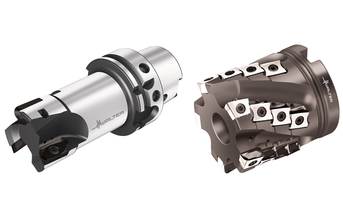
Crucial beneficial effect
The crucial beneficial effect that Walter has been offering its customers for some time now, goes well beyond this: The tool specialist develops complete machining concepts, including all process steps which arise during the production of a component. These concepts are individually tailored to the customer's needs and contain detailed recommendations regarding which tools are used in which step.
Thomas Schaarschmidt says: "We have taken our customers' list of requirements and developed it further. In other words, we have been systematically building on the comprehensive expertise that our customers need to take on the problems and challenges associated with the production of their components. We make this expertise and the discoveries which result for the production process available to our customers. We are thereby actively helping them to use our tools as efficiently, and as cost-effectively, as possible." First, Schaarschmidt's team defined specific components that are frequently used in the aerospace industry: Structural parts made from titanium aluminium alloys, for example, or engine and landing gear components. The Tübingen-based experts developed complete machining solutions for these components in close collaboration with technology partners from the sector: Key customers, machinery and software manufacturers, suppliers, universities and research institutes.
Practical development
"For every component for which we develop a machining solution together with the customer, we analyse the features and look at which and how many variations exist for each component. Then we map the entire process chain as it is implemented at the customer, at Walter in-house or at technology partners. This means that we know every detail that is relevant for machining the customer component."
In the next step, a roadmap is created that defines which steps are to be taken to the finished solution. The specialists identify what they can do where, which processes they have already mastered, where there is need for development and how this should be covered most effectively and in the quickest way possible.
(Continued on next page)


























